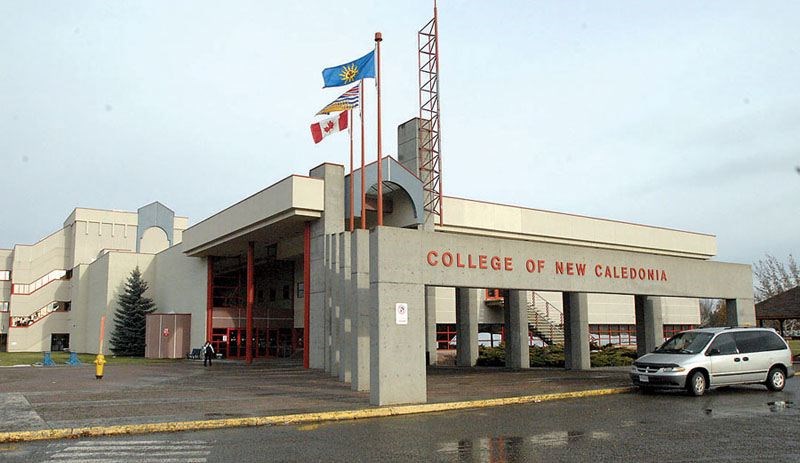From all over the world, women came to the College of New Caledonia and gathered for a celebration of women in education, women in leadership, and women in everyday life who get to be women. It's not every culture that extends this human right.
"(Even some at CNC) have managed to overcome incredible obstacles to take part in post-secondary education," said college president Henry Reiser, who noted "this is a CNC first" to hold a commemorative event for International Women's Day.
It was a strong start. After his remarks, the event was followed by Darlene McIntosh who said a prayer and extended a welcome from the original nationality of this region, the Lheidli T'enneh First Nation.
"Since the beginning of time, women have been the centre of the family," McIntosh said. "Mother Earth, thank you for supporting us."
The master of ceremonies was Shiwani Gupta, originally of India, a female leader with the CNC Students' Union.
"People, including men, are outraged" by practices like honour killing at the extreme end, but all points on the scale of gender-based violence, she said. "It makes empowerment of women all the more critical. Like Hillary Clinton said, no society can achieve its true potential when half the population is denied the opportunity to achieve theirs."
Gupta is a student in CNC's nursing program.
Another south-Asian woman, Baljit Kaur, talked of her path to success as a model for the struggle women face. She started in menial jobs when she moved to Canada - the food and retail sectors - and started to succeed more tangibly when she got an entry-level banking job with one major bank but had to quit for family reason. When she went back to banking, at a different major bank, she excelled again, proving that all along that to thrive only required hard work and applied intelligence - commodities women possess in equal measure to men.
"You have to find your way to be successful," she told the people gathered at CNC. "Nothing comes easily; you have to work hard for it."
Artist and educator Cat Sivertsen had a North American and European perspective to give. In addition to her spoken address, she also had a work of original art installed in the event space - an old Singer sewing machine, with sage plants growing tall through its legs and foot pedal. In the drawers were hand-made buttons. On its desktop was a suitcase full of linens. Each item had its own voice in its conversation about the female condition.
"I have a warm bed to sleep in, I don't feel threatened walking down the street, I was gifted an education at least from Kindergarten through Grade 12... Canadian women have freedom. It is written right into our Charter of Rights. But it hasn't always been so," she said, gesturing to the sewing machine and all its generational meanings. Of those past girls and ladies and elders who used such machines, or were effectively shackled to them, she paid tribute. "These women are my women, your women, and they made it (social progress) happen."
As added measure, Sivertson disclosed that she found out eventually that she has aboriginal blood mixed with her Euro roots, but one of her recent ancestors had to deny her heritage and expel herself from her culture in order to participate in mainstream society in those days - days not that far removed from today.
Women attaining equality is still far from complete even in Canada, let alone the rest of the world where some countries are outright hostile to female enfranchisement. One of the formative impressions of culture for Gabriella Solonas, in her aboriginal childhood, was the disappearance of Nicole Hoar (still an unsolved mystery vexing the region). The horror of a missing woman was brought right into her own family when a member of her family became one of Cody Legebokoff's victims. She was grief-stricken that women could be such targets, so vulnerable and exposed by society's lack of protection.
"Those experiences really build the love inside of me for women, especially Dakelh (the region's collective aboriginal cultures, also known as Carrier) women," said Solonas. "The patriarchy that is embedded in Canadian law, in the Indian Act...we have a lot of work ahead of us. Now I have to be a leader for my daughter," she said, cradling seven-week-old Mshko-M'tignoos-Kwe.
"As a First Nations woman, a Dakelh woman, I can think about women in my community," Solonas added. "We are life-givers. We are connected to the land and the water. (That leads to) a respectful, loving community."


